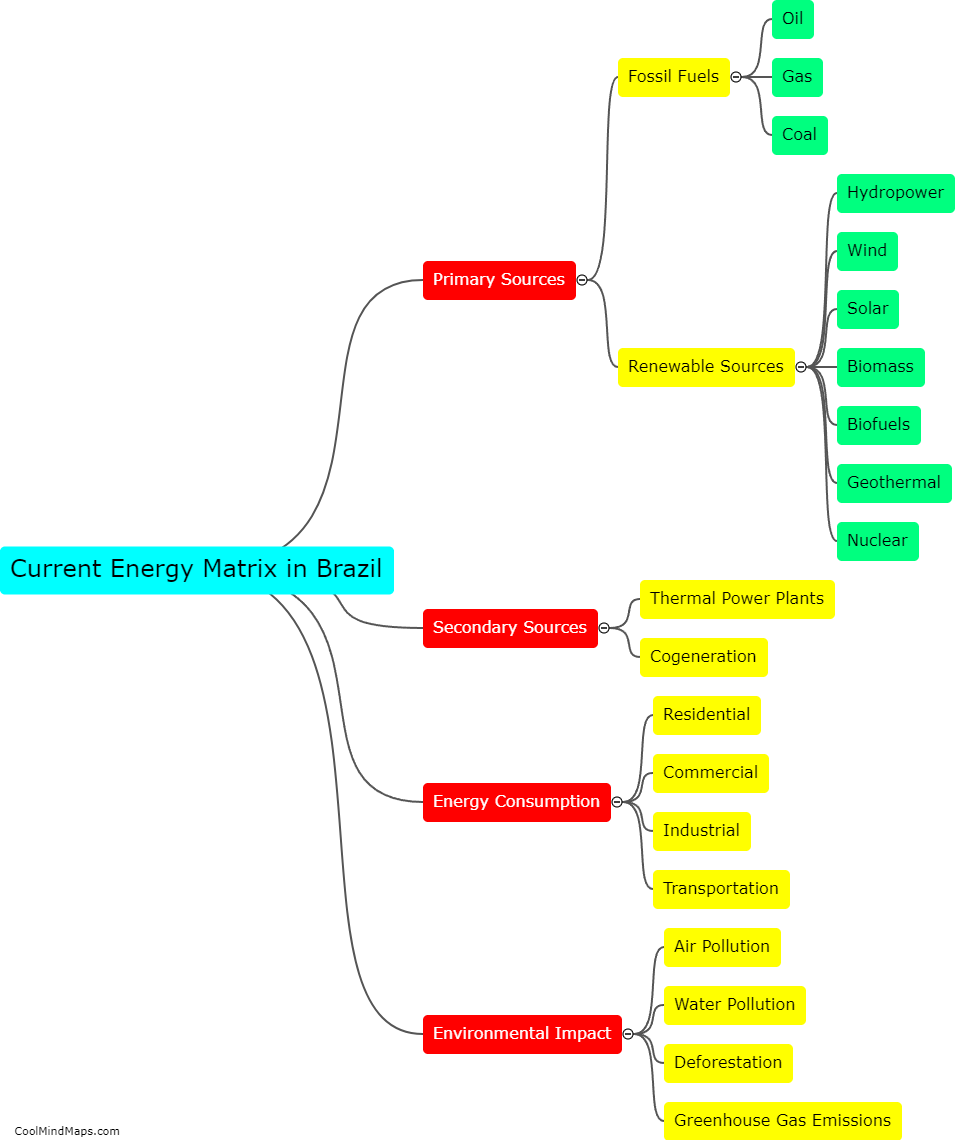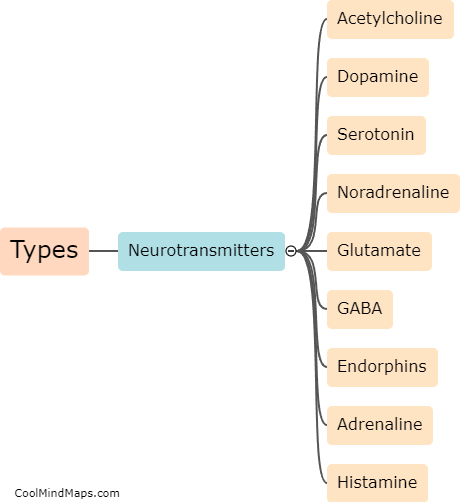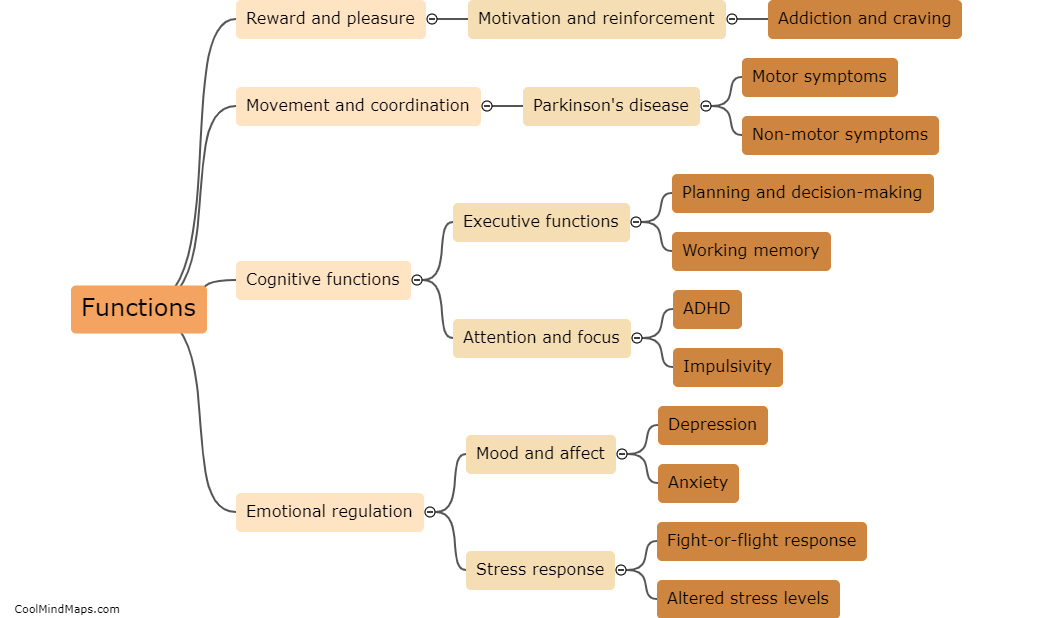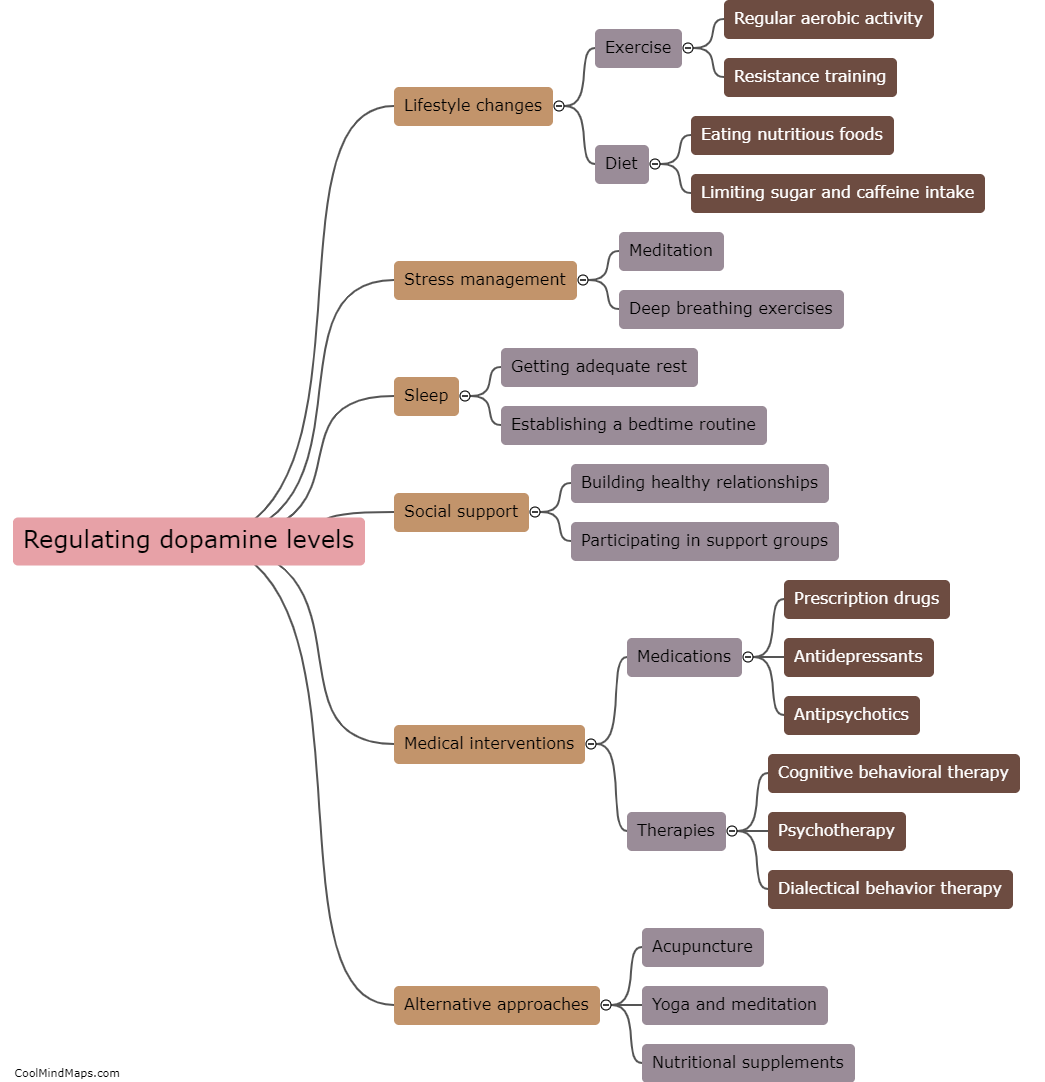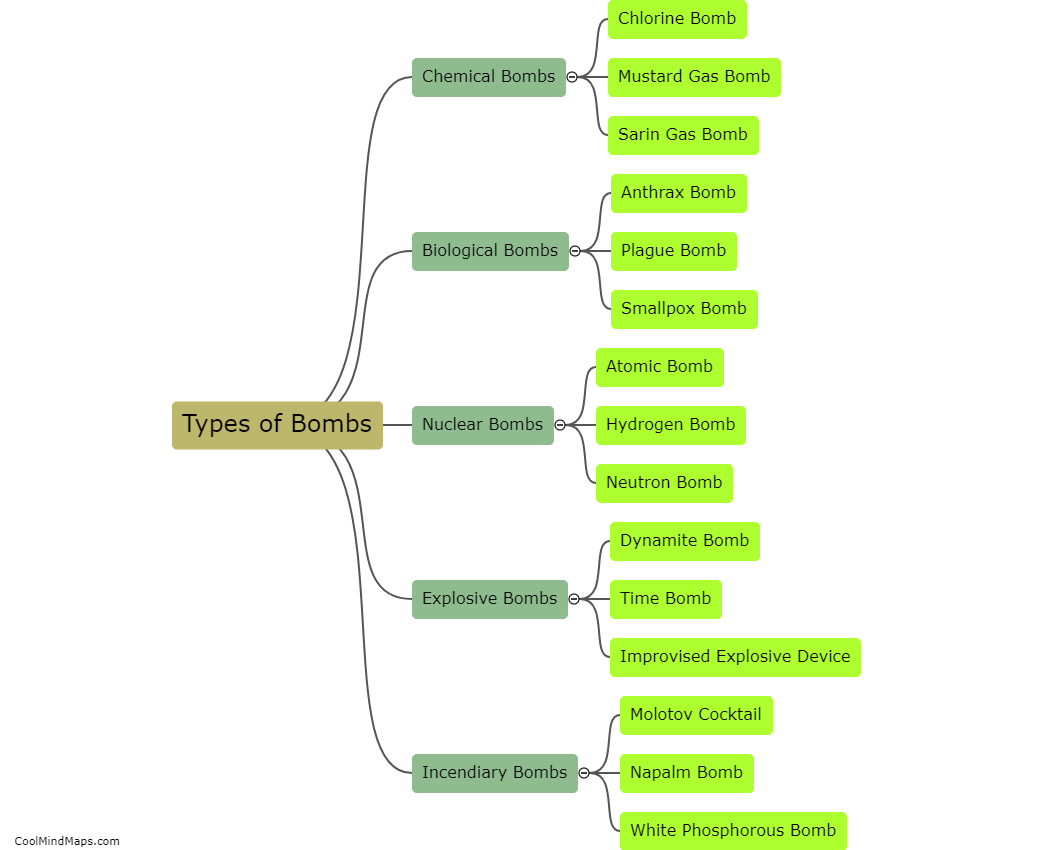What are the effects of dopamine on movement?
Dopamine is a neurotransmitter that plays a crucial role in regulating movement in the human body. It is primarily produced in the substantia nigra, a region of the brain that is responsible for controlling motor functions. Dopamine acts as a chemical messenger, relaying signals between neurons involved in movement coordination. The primary effect of dopamine on movement is its facilitation of smooth and coordinated muscle activity. Insufficient dopamine levels, as seen in conditions like Parkinson's disease, can result in motor difficulties such as tremors, stiffness, and slowed movements. On the other hand, excessive dopamine levels, as observed in conditions like schizophrenia or drug abuse, can lead to hyperkinetic movements or involuntary muscle contractions. Overall, dopamine plays a crucial role in maintaining proper movement control and any imbalances in its levels can significantly impact motor function.

This mind map was published on 3 December 2023 and has been viewed 86 times.

